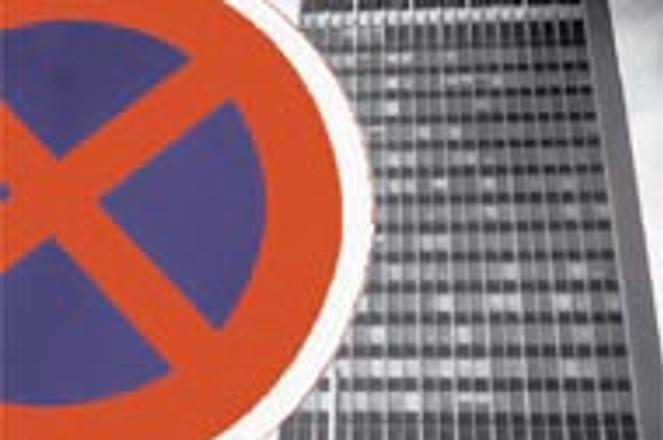Enough is enough. STV headquarters (pictured above) is set to be purged by opposition parties.Vladimír Hák-Profit. Collage by The Slovak Spectator
The parties of the former political opposition are itching to make personnel, editorial and legislative changes to the state-owned STV channel, but will not be able to satisfy their ambitions until they form a new government and prepare a new public TV law.
STV, which has been widely criticised by media groups for serving the political interests of outgoing Premier Vladimír Mečiar and his populist HZDS party, is controlled by a Council whose members are chosen by Parliament. The Council's mandate, among other things, is to protect balance and independence in STV's editorial policy.
Following September's national elections, which handed opposition parties almost 60% of the vote, politicians from the victorious parties charged that the Council had failed utterly in its role and that its members would have to be dismissed.
"The situation in STV is critical," said Vladimír Palko, a legal expert with the opposition SDK party, which appears likely to form the bedrock of the new government. "There is still a small group of people [at STV] who are lobbying for the HZDS even after Mečiar's defeat in the elections," he added.
Palko explained that the purge of Council members would have to wait several weeks. "As soon as the next government is formed, it has to approve an amendment to the STV law at its first session," he said. "Parliament would then be able to push through a law within 24 hours." The whole procedure, according to Palko, could take just a few days if the future ruling coalition agrees unanimously.
Once in force, the new law would empower the government to dismiss the current members of the STV Council and replace them with representatives of all parliamentary parties, media professionals and trade unions. "We will make sure that even the future opposition [the HZDS and the far-right SNS party] will take part in the Council, even though they do not deserve it from the moral point of view," stressed Palko.
The former opposition parties' obsession with replacing the Council goes against the pronouncements of many media professionals, who have always held STV General Director Igor Kubiš and his management personally responsible for the deterioration of STV. But opposition officials explained that Kubiš can only be replaced at the behest of the council and with the approval of cabinet.
"Only the [STV] Council is allowed to propose the dismissal of the general director, and one could say that currently it would block any move in this direction," said Ľubomír Jariabka, boss of the Audio-Visual Creators's Trade Union and a former STV employee.
Palko explained that the HZDS had ensured that it would control the Director's chair over six years ago. "Back in 1992, the HZDS pushed through a change to the STV law, according to which the STV Council consisted of people nominated by political parties and was elected by Parliament," he said.
After 1994 national elections, Mečiar's victorious HZDS formed a coalition that held a Parliamentary majority [81 out of 150 seats], and managed to nominate its own candidates to the council. The council was then empowered to confirm or dismiss the STV General Director and STV management.
"This nice [public television] model has turned into a caricature, because [STV Council] members, nominated by the HZDS, shamelessly claim that [STV] did not turn aside from any principles and laws established for public media," said Milan Ftáčnik, a media expert for the reformed communist SDĽ party in an interview with the daily Práca. "We, the viewers, know that this was not true," he added.


